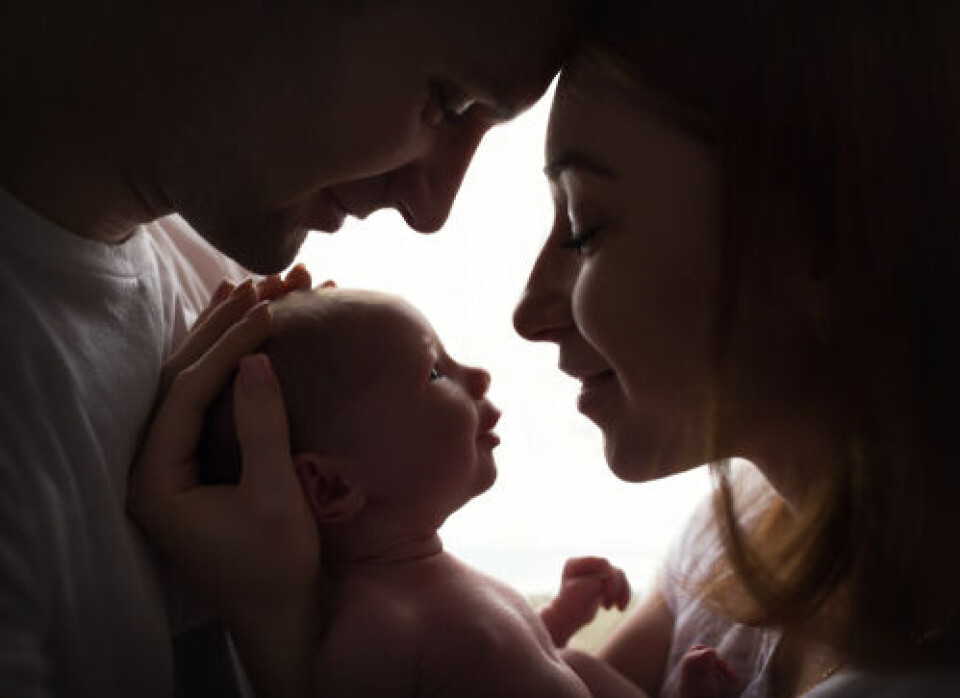-
Reaction to François Hollande's call for France to create refugee status for US researchers
Former president lends support to scheme for scientists reportedly 'forced into exile' by the Trump administration
-
Ten top science museums to visit in France
Explore interactive exhibits and workshops offering engaging experiences and fun for all ages
-
Solar eclipse in March: The best places in France to see it
Visibility will depend on where you are in the country
Research in France shows having a baby does change your brain
Studies also found that ‘mommy brain’ is a misnomer as a dad’s cognitive performance is also impacted in the days and weeks after birth

Your brain physically changes when you become a parent – and a man’s brain can undergo the same changes as a woman’s, a researcher has found.
Canadian Jodi Pawluski, affiliated to the University of Rennes, has been studying the neuroscience of pregnancy, birth and early parenting – and the possible loss of short-term memory, sometimes called ‘mommy brain’, after a birth – with some surprising discoveries.

“If men do enough parenting, their brains show the same type of changes. We’re really talking about ‘parent brain’,” she said.
She explains that broken nights, along with the responsibility and stress of keeping a baby alive, are partly the cause.
“Mental load also plays a big part: new parents are very busy and have a lot to remember.
“Also, new mothers can still feel isolated, and under pressure to be perfect.”
Brain physically changes
Research shows that the brain actually undergoes visible physical changes.
“It adapts to ensure parents learn to parent successfully.
It’s a miraculous, complex, positive and very necessary process.
“The brain changes in structure and size during pregnancy, and in function and activity after the birth.
The size and structure of the parts of the brain which control attachments to other people decrease, and the areas which control attachment to a baby increase correspondingly.”
In the first weeks after birth, primary carers’ brains are busy learning to identify their child, the sounds they make, their habits and signals.
Memorising new routines
They are also memorising new routines.
During this period, they have less short-term memory capacity and slightly less verbal agility, explains Dr Pawluski, whose book on the subject, Mommy Brain, was recently published by Larousse.
“Two studies have been done researching the same phenomena with men and adoptive mothers, which show the same brain changes happen, albeit with some differences.
“The brains of adopting and birth mothers respond differently to infant cries.
Men who are primary carers show much the same changes as mothers.”
Dr Pawluski, who has three young children, says people are very interested in the basic biology of parents’ brains.
“I get a lot of interest from mental health professionals and mothers themselves.
People tend to feel more relaxed when they know that these changes are normal.
They don’t appear to be permanent.”
Parents brains age better than non-parents
The brain does, however, evolve, and the brains of parents appear to age better than non-parents.
It also seems that brains that have already been through the ‘baby fog’ experience slot into childcare more easily the next time round.
Research into the subject is continuing in Israel, the US, Spain and Holland.
“An interesting aspect is that there are nuanced differences in brain changes according to, and depending on, cultural aspects” says Dr Pawluski.
“In the past, it has been written off as a women’s thing, and in France men don’t tend to do much housework or take a big part in parenting.
Related articles
France rolls out ‘1,000 day’ centres for parents and young children
How to get involved in your child’s education in France
I deserve a gold star for choosing to raise my five kids in France
























